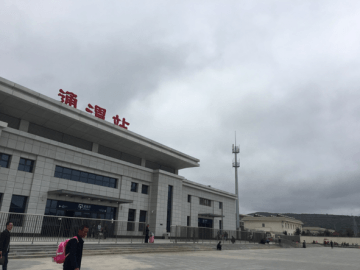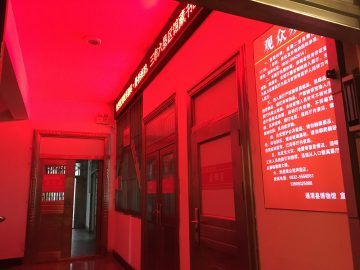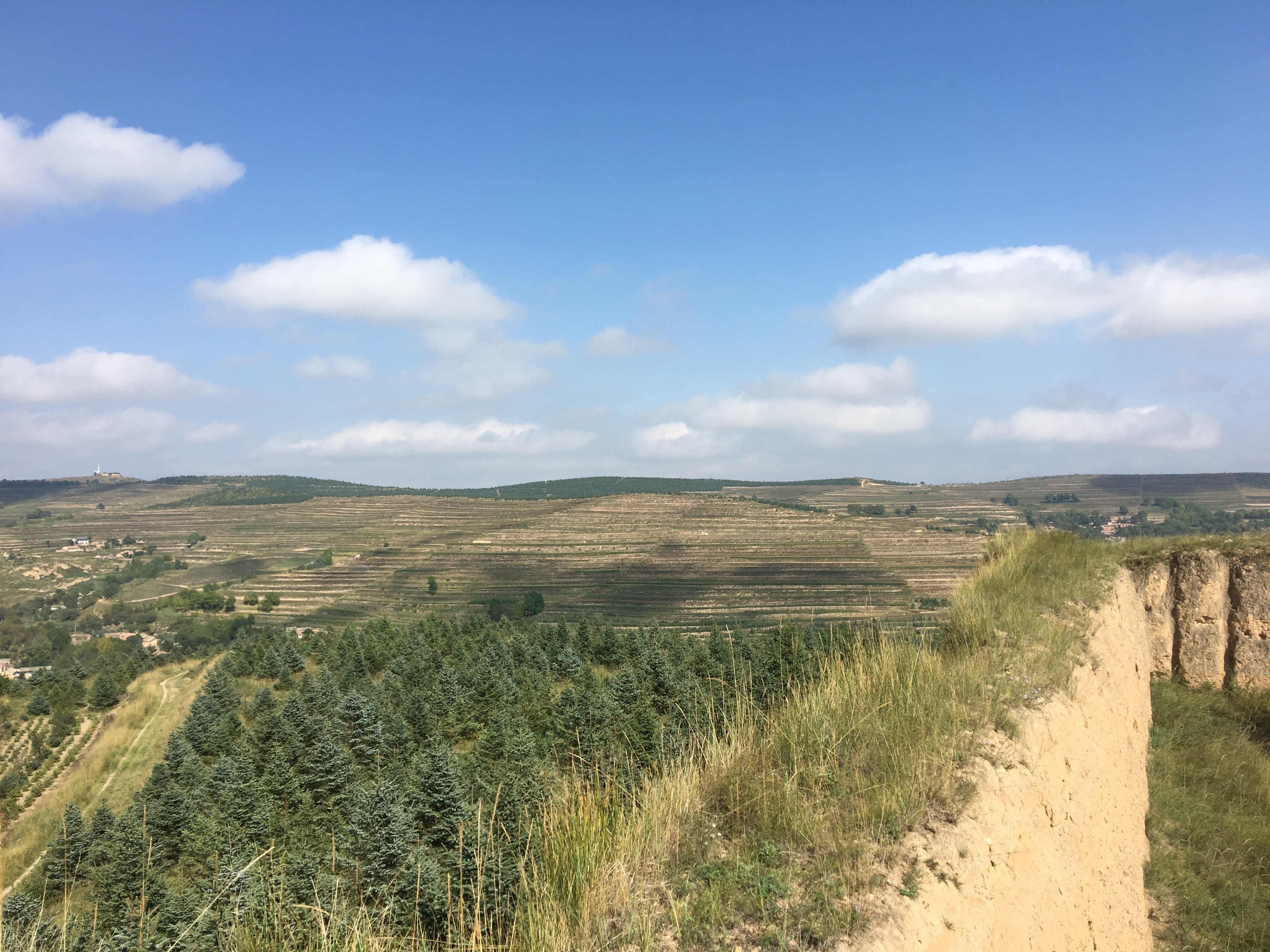by Niall Chithelen

Drive the laneless roads of Lanzhou, sit the high-speed train, and then you are in the center of Tongwei county, a city among ancient villages, covered in construction works, ground floors of sliding glass storefronts, signs of green, blue, red, or black, with yellow or white lettering. And yet nothing shines here; this is not a colorful place.
A man who seems to be helping to organize your travel in the area met you at the train station and he reappears at lunch. You are not sure who he is, but he knows people here. He answers the phone with a gust of air.
A local museum sits behind a heavy locked door on the third floor of a building which is otherwise unremarkable and quite short on windows. Some artifacts in the museum are thousands of years old, some are hundreds. Also on display are two posters from the 1930s, written haphazardly by young members of the Red Army, messages to the “ordinary people” in the area. The tour guides are expert and excited. When you leave, they close the door again and lock it. The last group of visitors was days ago.

The landing outside the museum is lit only by a sign of dry red light. A young child wanders around the museum, stands on the landing, wary of the visitors. His attention is focused on a phone screen, and, watching him walk in front of the sign unfazed, you wonder if his memories too will bear the darkness of this building, hued red around their edges.
Outside the city are the terraced hills and rammed-earth forts. At the top of a hill, you walk up to the edges of a fort wall and look across the landscape. Except for some wind turbines, this sight has not changed much for a long time.
These terraces are old. This area has experienced terrible famines. It is the “land of a thousand forts.” Living here, you might have stored some goods on the hill, you might have known to fear sudden horseback arrivals. Or you might have ridden in from Henan province with a gun, equipped for plunder and torture and murder. Right? Maybe. This was not in the museum.

The high-speed railway station changes much. The city is swathed in scaffolding. Tongwei is connected as it never has been before. But you rode the high-speed rail here in order to study the past, you stood atop slightly crumbling walls and noticed how much has stayed the same. Surely no memory of the place is complete without great changes and cycles, arriving machines and political upheaval, violence and fear and hunger. But when the hills are quiet and you are just a visitor for today, it is not easy to look out and know what history you are meant to imagine.
